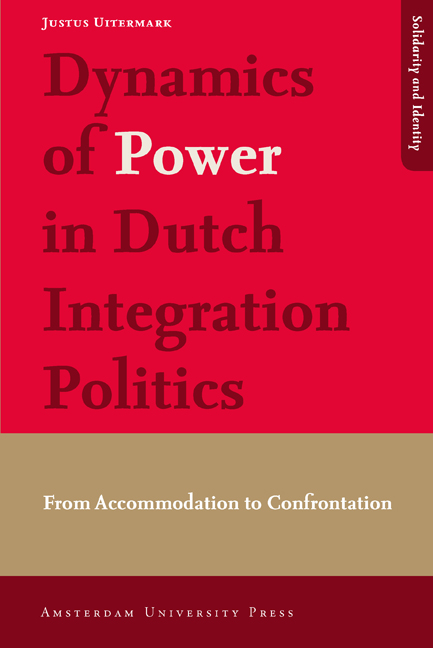12 - Comparing the Power of Minority Associations in Amsterdam and Rotterdam
Published online by Cambridge University Press: 15 January 2021
Summary
This chapter offers a comparison of the governance figurations in Amsterdam and Rotterdam. Whereas Amsterdam's governance figuration was volatile and skewed, Rotterdam's governance figuration was balanced and stable. This chapter's main argument is that these differences in the structure of governance figurations affected the intensity and nature of civil engagement. It argues that Rotterdam's governance figuration more effectively fostered civil engagement in the sense that it produced more constructive relations among different types of associations, worked against extremism, promoted participation in civil society associations and increased electoral participation.
The first section summarizes the findings of the case studies and elaborates on the argument that Rotterdam's governance figuration contains a more powerful civil society. The second section provides a qualitative comparison of the forces that divide and integrate minority associations. The subsequent sections test the argument that Rotterdam's minority associations have greater capacity to tap state resources, to organize constituents and to influence politics. The chapter concludes by arguing that the minority associations in Rotterdam's governance figuration worked more like civil schools while minority associations in Amsterdam functioned more like talent shows. Both governance figurations generated specific distributions of power – with the one in Rotterdam more closely approaching the ideal of a harmonious, inclusive, egalitarian and engaged civil community.
Governance figurations in Amsterdam and Rotterdam
Table 12.1 summarizes the findings of the previous chapters. It shows that Amsterdam saw a succession of different elites. In the 1980s and early 1990s, left-wing associations enjoyed central positions. Although these associations had many highly educated sympathizers and leaders (such as political dissidents), they were nevertheless rooted in lower-class immigrant communities and were active in mobilizing these communities. But ethnic corporatism was plagued by contradictions. Contrary to what we would expect on the basis of the literature on multiculturalism, left-wing associations dominated this governance figuration. They did not open up positions of power to the second generation or conservatives. While these contradictions made ethnic corporatism unstable, the final blow came when the government introduced neoliberal governance instruments like market simulations and advertising campaigns. The type of representation that the left-wing associations had monopolized was made obsolete, and they were gradually marginalized.
- Type
- Chapter
- Information
- Dynamics of Power in Dutch Integration PoliticsFrom Accommodation to Confrontation, pp. 233 - 244Publisher: Amsterdam University PressPrint publication year: 2013



